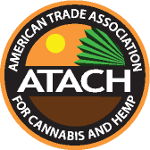Following the 2018 Farm Bill, Oklahoma has taken a permissive stance on synthetic cannabinoids, including Delta-8 THC, allowing these products to circulate within an unregulated or gray market framework. This approach permits the sale of hemp-derived intoxicants without specific state-imposed restrictions on potency, labeling, or consumer protection.
1. State’s Classification Regarding Hemp Intoxicants
Oklahoma maintains hemp intoxicants within an unregulated or gray market framework. While hemp-derived products are legal, the state does not enforce specific regulations for synthetic cannabinoids like Delta-8 THC, resulting in minimal oversight. Accordingly, Oklahoma allows synthetic cannabinoids, such as Delta-8 and Delta-10 THC, on the market as long as they comply with federal Delta-9 THC limits.
2. THC Potency Limits Per Serving or Package for Hemp Intoxicant Products
Oklahoma does not set specific potency limits per serving or per package for synthetic THC products. Without these limits, potency may vary significantly, potentially posing risks to consumers unfamiliar with these variations.
3. Public Health Measures
Oklahoma has not implemented public health measures specific to synthetic cannabinoids. The state lacks requirements for age restrictions, child-resistant packaging, and detailed labeling, resulting in limited protections to mitigate risks associated with synthetic THC products.
4. Primary Enforcement Mechanisms Against Unregulated or Illegal Sales
Oklahoma’s enforcement regarding synthetic THC is minimal due to its unregulated status. The state does not actively monitor Delta-8 THC sales unless they breach federal Delta-9 THC content limits, with enforcement primarily reliant on federal compliance.
5. Consumer Protection Measures for Product Safety, Testing Standards, and Recalls
Oklahoma lacks mandated consumer protection measures for synthetic THC, such as testing for potency and contaminants or protocols for product recalls. This absence of standards may expose consumers to untested products with variable quality.
6. Advertising or Marketing Restrictions
Oklahoma does not impose advertising restrictions specific to synthetic THC products, allowing unrestricted marketing that may appeal to minors. This absence of oversight increases the risk of unintentional exposure among younger consumers.
7. Responsible State Agencies
The Oklahoma Department of Agriculture oversees hemp cultivation and processing but does not regulate synthetic THC products. Due to their unregulated status, synthetic cannabinoids in Oklahoma lack active monitoring by state agencies, relying largely on federal compliance standards.
